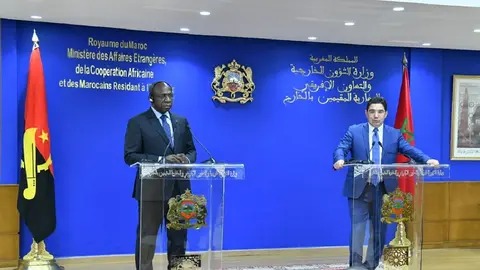Green synergy between Angola and Morocco

The 21st century has presented global nations with an imminent challenge: the transition to cleaner and more sustainable energy. In this context, the nations of Angola and Morocco have emerged as potential players on the African continent, and their recent cooperation augurs well for the region's future.
Angola, with its location in southern Africa, has an energy treasure trove waiting to be tapped. According to World Bank data, the country receives an average of 5.4 kWh/m2/day of solar energy, outstripping many of its African neighbours. This capacity, combined with its wind and hydropower potentials, such as the Lauca Hydroelectric Plant with an installed capacity of 2,070 MW, points to Angola as a renewable giant in the making.
However, the country faces considerable challenges. Lack of private investment and the need for infrastructure, especially in rural areas disconnected from the national grid, are barriers to its energy development.
This is where Morocco, with its advanced track record in renewable energy, could offer tangible solutions. Morocco has invested significantly in green technologies, positioning itself as a benchmark in Africa. In exchange for its experience and capital, Morocco could benefit from Angola's natural resources, such as gas and ammonia, which are vital to diversify and strengthen its own energy matrix.
Moreover, the bilateral relationship between the two countries has been strengthened by recent gestures of solidarity. In July 2023, the two countries reaffirmed their cooperation and sought a political solution to the Western Sahara conflict. The Angolan president's act of solidarity towards Morocco after the September 2023 earthquake is also testimony to a robust and growing relationship.
Imagine a scenario where Morocco's advanced techniques in wind energy generation, such as those applied in its successful coastal region, are combined with the potential of southern Angola. Or where innovative Moroccan solar solutions illuminate rural Angolan areas, benefiting schools and health centres.
This cooperation would not only be a model of sustainable development, but also a demonstration of how two nations can benefit from each other, raising the standard of living of their citizens and securing a reliable energy future.
The Angola-Morocco partnership represents more than just a collaboration. It is a shared vision of a greener future and an affirmation that African unity and joint development are possible and essential. This relationship not only sets a precedent for other African countries, but also stands as a standard-bearer for how inter-African collaboration can be the master key to unlocking the continent's true potential.
Africa's development should not depend solely on the intervention of external nations. African nations possess the resources, both human and natural, to forge a prosperous future. It is through cooperation, mutual aid and the sharing of experiences and resources that the continent can truly move towards a sustainable and equitable future.

